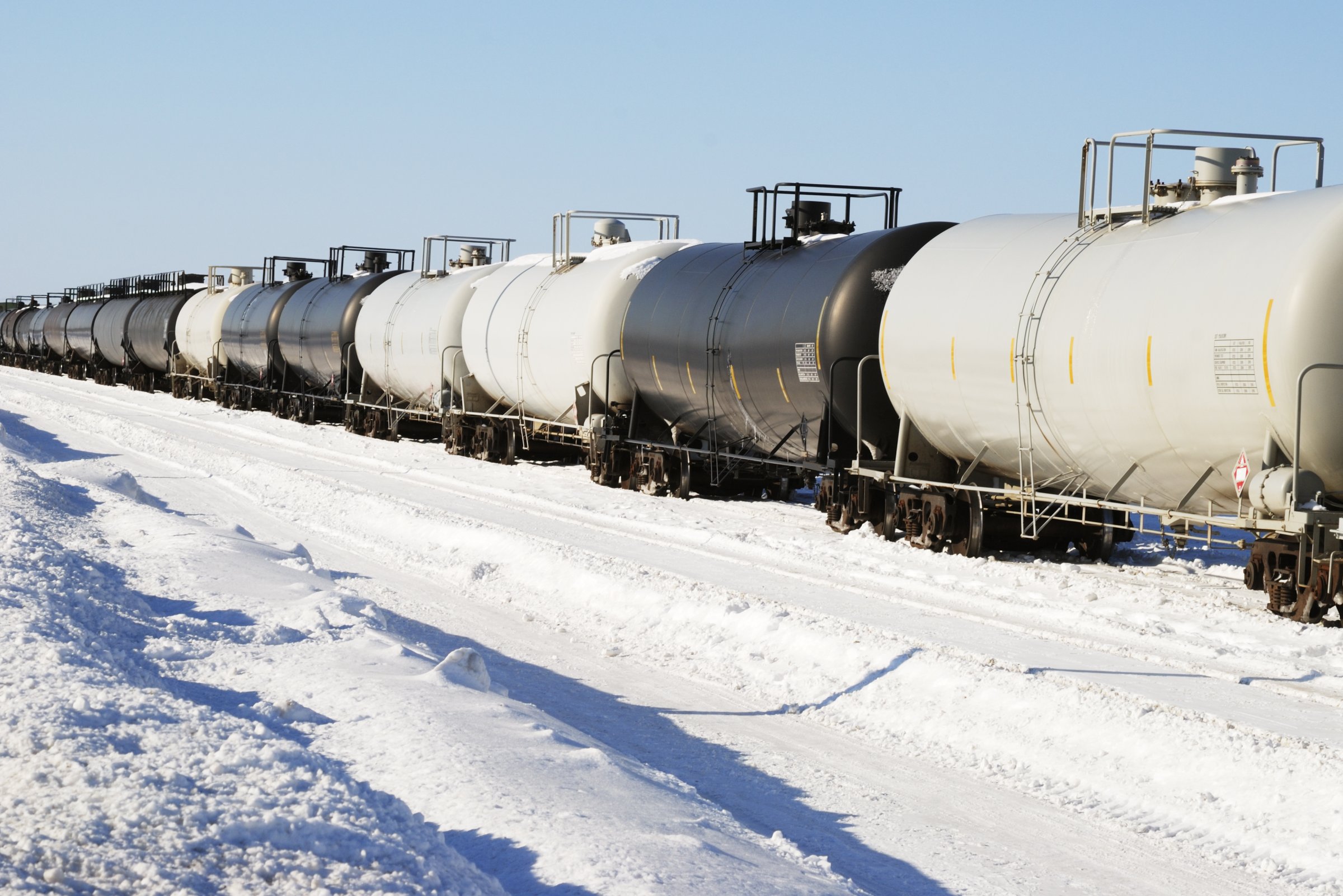
The latest oil train derailments could force the federal government to tighten the regulatory screws further than they had planned.
The train disasters in Ontario and West Virginia were the latest in a long line of explosions from oil trains, or “bomb trains” as they have been called derisively by their critics. The problem, regulators thought, were the thin-walled flimsy DOT-111 railcars, which had not originally been designed to safely carry volatile crude oil.
U.S. federal transportation regulators began writing new rules that would require the phase-out of these older cars, in favor of newer reinforced designs.
The tricky problem facing regulators is one inconvenient detail – the newer railcars that have been trumpeted as much safer were the ones that derailed and exploded on February 16 in West Virginia. The so-called CPC-1232 cars are an upgrade over the DOT-111, with thicker hulls to prevent puncturing and pressure valves to vent gas in the event of the railcars overheating.
Read more: Train Carrying Volatile Bakken Crude Derails In Canada
Nevertheless, even though the CPC-1232 cars have demonstrated that they are inadequately safe, much of the crude hitting the nation’s railways are not even traveling to that standard. Railcar manufacturers do not have the capability to ramp up production of the CPC-1232s fast enough, with a backlog of at least 50,000 cars. Meanwhile, there are still around 171,000 DOT-111s still in operation.
And in another loophole exposed by E&E News, railroad companies can even continue to use damaged railcars which leak oil, with the approval from the federal government.
Another problem is the extra volatility that Bakken crude has demonstrated. Due to the associated volatile gas that comes with oil drilled in the Bakken, the oil carried by train coming from North Dakota is more dangerous than conventional crude. The state of North Dakota has required that producers process the oil to remove the gases, and that rule takes effect on April 1. While it is so far unclear if the crude that exploded in the West Virginia incident had undergone this type of processing, it would not have been required.
“At this point, we have to let this order go into effect and let the operators get the equipment installed,” the Director of North Dakota’s Department of Mineral Resources Lynn Helms said in response to questions raised in the wake of the West Virginia derailment about North Dakota needing to address safety more aggressively.
Safety on the rails is critical because of the surging volumes of oil moving on the nation’s railways. An estimated 400,000 barrels of oil were transported by railcar in 2013, a dramatic jump from just 11,000 barrels in 2009, according to data from the Association of American Railroads.
The federal government has been criticized for taking way too long to issue new safety standards. The Department of Transportation proposed new rules in August, but has now twice pushed off finalizing those rules, missing the original deadline at the end of 2014.
The proposal has not committed to one rail car design, instead it reviewed several with different safety features and levels of wall thickness. They also may only require a gradual phase-out over the next two to three years of the DOT-111 railcars. Some politicians, including Senators from North Dakota, have resisted a swifter phase-out, fearing damage to the state’s oil production. The oil shipping industry has heavily lobbied the U.S. Congress for favorable treatment.
Read more: State Of Emergency In West Virginia Following Oil Train Explosion
But the latest disaster in West Virginia is once again raising pressure for stronger action. “Yet again, we have seen a rupture-prone rail car carrying volatile crude oil wreak havoc on a community, and it further demonstrates that the federal Department of Transportation and Office of Management and Budget must release tough, comprehensive rail car standards to help avoid a future tragedy,” U.S. Senator Chuck Schumer said in a statement.
Canada is also stepping up its efforts. The government is considering a tax on oil-by-rail shipments, with the proceeds put into a compensation fund to cover damages from future derailments.
All eyes turn to the White House where the Department of Transportation recently sent a “comprehensive” set of rules. A final version is expected in May. Pressure will be on the Obama administration to ensure a weak rule doesn’t emerge as the West Virginia disaster is just the latest reminder that rail safety regulations are inadequate.
This article originally appeared on Oilprice.com.
More from Oilprice.com:
More Must-Reads from TIME
- Donald Trump Is TIME's 2024 Person of the Year
- Why We Chose Trump as Person of the Year
- Is Intermittent Fasting Good or Bad for You?
- The 100 Must-Read Books of 2024
- The 20 Best Christmas TV Episodes
- Column: If Optimism Feels Ridiculous Now, Try Hope
- The Future of Climate Action Is Trade Policy
- Merle Bombardieri Is Helping People Make the Baby Decision
Contact us at letters@time.com